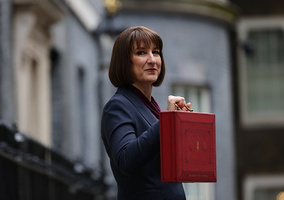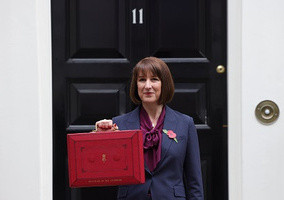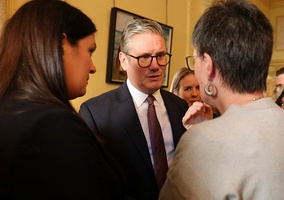It is “poor timing” for the new Civil Society Covenant, the chief executive of a local sector infrastructure body has said at a meeting in Westminster this week.
Bristol-based Voscur’s CEO Rebecca Mear said the recent announcement of an increase to employer national insurance contributions (NICs) would be detrimental to the finances of her organisation’s charity members.
She said the covenant, which is being designed to reset the relationship between charities and the state, must come with investment to recognise the financial challenges facing voluntary organisations.
Addressing the All-Party Parliamentary Group on Charities and Volunteering on Wednesday, she said: “I’m going to be honest: the impact of employers NIC is major, and we can’t get away from it. It’s poor timing for the covenant.”
Meanwhile, charities minister Stephanie Peacock told charities at a Pro-Bono Economics event this week that the government was keen to “tap into your expertise to tackle the UK’s challenges together” as part of its work on the covenant.
‘People are very worried’
Citing a recent survey that Voscur conducted among its member charities, Mear said that 87% of the organisations that responded said that the controversial employer NICs would impact their budgets negatively.
“Coming on the back of depleted reserves, both financial and emotional, from the pandemic and cost of living crisis, it is major. People are very worried,” Mear added.
Mear continued that additionally “the VCSE sector itself has incredible workforce challenges around retention and recruitment of staff, tied in particularly to the cost-of-living crisis and the sector generally not being able to pay decent enough salaries to recruit and retain.”
Discussing Voscur member charities’ wishes for the covenant, Mear said that it “needs to have investment.”
More broadly, Mear said: “Imagine what we could achieve if we allowed community organisations to define not just the delivery of the outcome, but the outcome itself.
“We all need a long-term approach. Long-term investment is required if we’re to make real, community-led social change.
“That will need to come away from six- or 12-month funding streams, [and decisions] made at the 11th hour […] It will have to be a much more long-term basis.”
She also called for a decrease in bureaucracy from the national government, and more trust in civil society organisations.
“[Government ministers] need to trust us,” said Mear. “Imagine what we could do with more resourcing and less onerous reporting that appears to go nowhere […] If this was cut and instead, there was investment in community-driven solutions and assets.”
Minister acknowledges power of civil society
Charities minister Peacock told a Pro-Bono Economics event this week: “We’ve all seen the sector play an indispensable role in our towns, cities and villages up and down the UK.
“From stepping up to support national emergencies, to the aftermath of the civil unrest this summer, to everyday interactions and support for those who need it most in society.
“Each government department has a unique connection with civil society and I’m keen that we work together across Whitehall to make this relationship stronger for a better covenant.
“Government can do many things, but it doesn’t have the same relationships, local knowledge, trust, and understanding of the challenges being faced by people across the UK that civil society does.
“That is why we want to tap into your expertise to tackle the UK’s challenges together.”
Related articles












